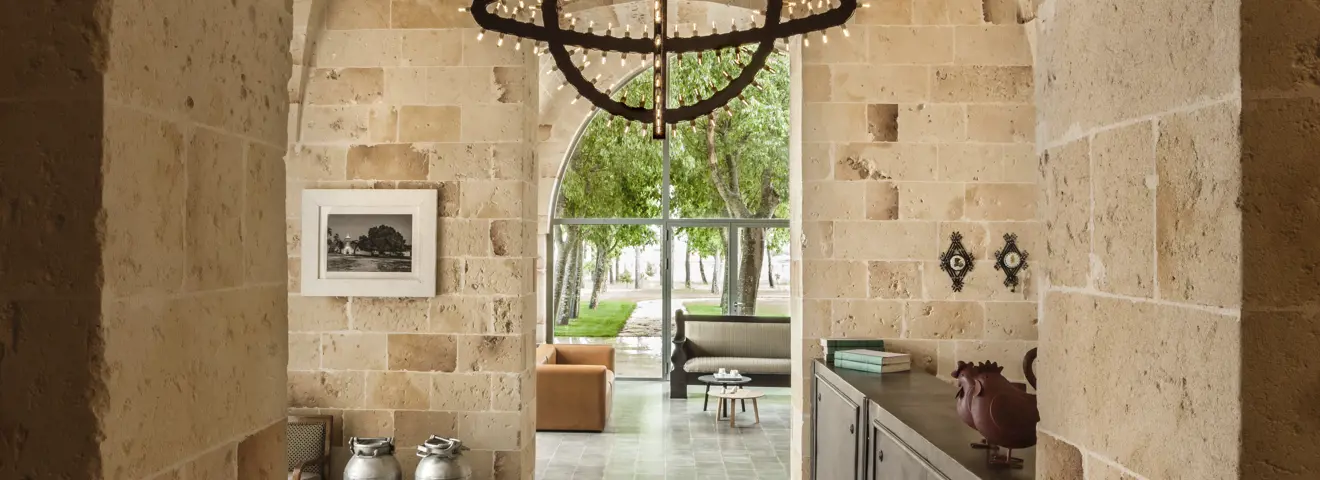What is a boutique hotel?

A breath of fresh air is blowing through the hotel world. The era of impersonal, overpriced chain hotels seems to be giving way to something unique: the boutique hotel. But what exactly does this charming newcomer encompass? It's hard to find a precise definition, but let's take a look at the characteristics that make boutique hotels so special.
A boutique hotel, whose charm lies in the smallest detail, is renowned for its intimate atmosphere and unique style that exudes elegance. Far from the uniformity of the big chains, each of these gems offers a personal touch you won't find anywhere else. With a deep appreciation of their history, boutique hotels combine comfort and character, making every night a story in itself. Often nestled in the heart of bustling towns, they are the ideal starting point for those wishing to discover the region's secrets, in luxurious surroundings and with personalized attention.
Exclusivity and privacy
Boutique hotels are true gems in the hotel world, distinguished by their exclusivity and intimate atmosphere. With just 10 to 100 rooms, they offer a unique blend of intimacy and comfort, each with its own history and personality. Design plays a key role: from the architecture to the interiors, every detail has been carefully thought out to offer a high-quality, themed experience. Known for their eccentric character, ranging from the playful and quirky to the extremely trendy, these hotels are often found in the city's liveliest and trendiest neighborhoods.
The culture of these hotels is deeply rooted in the local community, with a celebration of local traditions and tastes. Guests can expect unrivalled personalized service, with every detail designed to make their stay unforgettable. The guests attracted to boutique hotels are as diverse and unique as the hotels themselves: from baby boomers looking for a unique experience to millennials who appreciate style and authenticity. In a boutique hotel, you'll find a melting pot of individuals who have one thing in common: a preference for the unique, the fashionable and the real.
The origins of boutique hotels
The concept of boutique hotels originated mainly in the USA and the UK, with pioneering openings in London and San Francisco in 1981. The term "boutique" itself only became a household word in 1984 with the launch of Morgans Hotel in New York by Ian Schrager and Steve Rubell. It was around this time that hotel giants such as Marriott, Holiday Inn and Hilton first appeared on the scene. As these chains prospered, smaller hotels sought to differentiate themselves by offering new and innovative services, including 24-hour room service. Schrager and Rubell introduced an innovative concept that quickly caught on, making the "boutique hotel" an established term. Today, even the major chains have changed their tune and are investing in this unique hotel concept.
Characteristics of a boutique hotel
Although there are no fixed criteria for classifying a hotel as a "boutique", certain characteristics are often repeated:
- Small size: with 10 to 100 rooms (maximum 150), boutique hotels offer an intimate atmosphere. The best of them often have no more than 30 rooms, to guarantee exclusivity and personalized service.
- Uniqueness: each boutique hotel has its own identity, even if it's part of a large chain. They aim to offer their guests a unique, luxurious experience, away from the standardization of the big brands.
- Design and aesthetics: from architecture to interiors, boutique hotels pay particular attention to design and decoration, often on a specific theme, to create a unique atmosphere.
- Location in trendy neighborhoods: many boutique hotels are located in the city's trendiest neighborhoods, where they are part of the local culture and history. They often choose historic or distinctive locations to offer their guests a special experience.
- Personalized service: thanks to their small size, boutique hotels can offer a level of personalized service that larger hotels can't match. This may include tailor-made facilities or personalized guides and events.
- Activities and experiences: boutique hotels focus on local culture, art and gastronomy. They provide access to unique local experiences, from city tours to exclusive events, often organized by the hotel itself.
In essence, boutique hotels are more than just a place to stay; they offer an enriching experience that highlights the local culture and uniqueness of a destination.

The difference between a boutique hotel and a hotel
Although boutique hotels and traditional hotel chains are grouped together under the umbrella term "hotels", the differences between the two are obvious as soon as you enter the lobby. Charming hotels focus on character and personality, while traditional chains often opt for uniformity. Whereas you'd expect recognizable style and décor in a standard hotel, boutique hotels surprise you with their unique, sometimes eccentric style.
Instead of competing solely on luxury amenities, boutique hotels focus on creating an experience. To do this, they offer not only unique accommodations, but also special events and personalized services that highlight the local culture.
In terms of audience, boutique hotels attract a specific group. From hip young millennials to experienced baby boomers looking for something different from the norm, all are attracted by the creativity and individuality that boutique hotels have to offer. These hotels particularly appeal to those seeking a blend of style, comfort and authenticity, without necessarily breaking the bank. Prices vary considerably according to location and services offered, so there's something to suit every taste and budget.